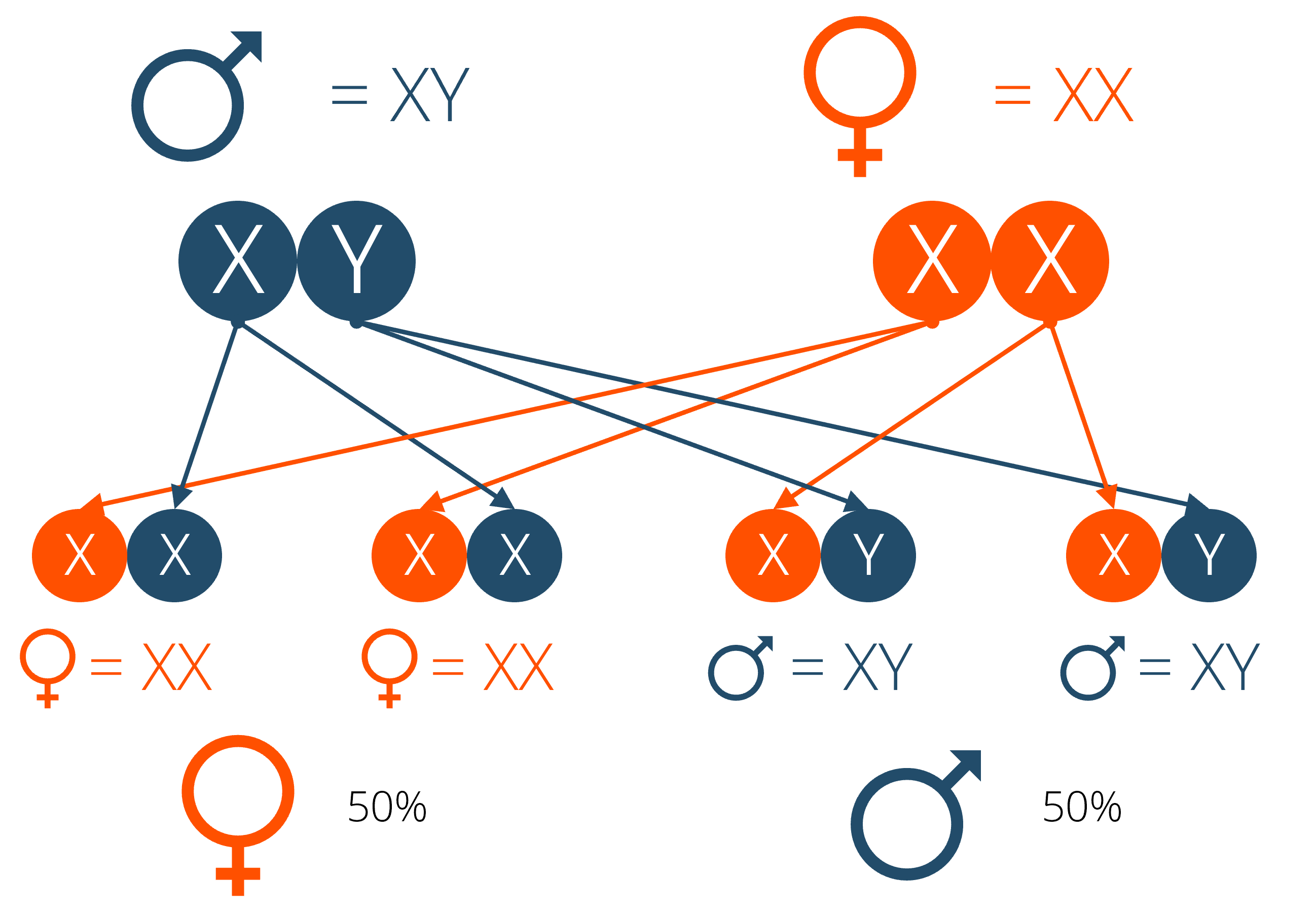The power of YY genetics
To understand tilapia genetics, we first need to step back to 10th-grade science class and refresh our basic knowledge of genetics. Every mammal has two sex chromosomes, which are either X or Y. All males carry the Y chromosome while females carry the XX chromosome. Statistically, 50% of offspring are male and 50% female.

Tilapia fish carry the X and Y sex chromosomes, and just like mammals statistically, 50% of offspring are male and 50% female. However, growing female tilapia is not considered commercially viable as female tilapia grow at nearly half the rate of male tilapia with their weight plateauing at 150-500 grams as they spend all dedicate their energy on reproduction rather than growing; female tilapia shape is more rounded that is not desirable for filleting. However, unlike mammals, tilapia is sexually undifferentiated for the first two weeks after hatching giving farmers an opportunity to sex-reverse females to become males by administering 17a-methyltestosterone (MT) hormone. From the outward appearance, the SR tilapia appears male, but genetically SR fish are still female with an XX sex chromosome. Under controlled conditions, MT Sex Reversal can achieve close to 90% males; however, most Indonesian hatcheries achieve closer to 65% as they either start the treatment too late; do not administer it correctly or feed a soy-based feed that contains phytoestrogens that counteracts the effects of testosterone.
Achieving a higher male ratio MT sex reversal comes at a high cost for both the farmer and the environment. MT-treated tilapia have lower immunity throughout their lifetime leading to higher mortality as the hormones delay the development of the immune system which provides a longer window at the start of the tilapia fingering’s life when it has no immunity giving bacteria and parasites an opportunity to infect resulting in very high mortality during the first six weeks. However, the effects of MT are more long-term as the hormones deform the genes responsible for immunity which means the fish is unable to develop its full natural immunity resulting in higher mortality during the grow-out phase. Higher mortality reduces harvest as well as pushes on the Food Conversion Ratio (FCR) which in turn reduces the farmer’s profitability. Not only do hormones affect the farmer’s bottom line but they also negatively affect the environment as the hormone-infused wastewater is discharged into the waterways leading to the sex-reversal of wild fish which in turn distorts the natural ecosystem. Recognizing the detrimental effects of hormones, several countries have started to ban the use of the MT hormone in tilapia farming.
A far better, safer, and sustainable way to achieve all-male tilapia is through using super male tilapia which produce close to 100% male offspring without the use of hormones. This has been possible through a more than 35-year natural selection breeding programme involving feminization and progeny testing to supermales that carry the YY sex chromosome that produce close to 100% natural male tilapia (NMT) without fail. However, the YY supermale’s powers last only one generation as all of its offspring carry the regular XY sex chromosome which if used to breed will produce 50% female and 50% male just as in mother nature so there is no adverse effect on the ecosystem.

Indo Aqua Sukses YY technology genetic theory
As NMT fingerlings are not hormone-treated, they have far superior immune systems from the very start resulting in much higher survival rates during the vulnerable hatchery phase as well as during the grow-out phase. Farming mono-sex male tilapia results in a faster Average Daily Growth Rate (ADG), better FCR and higher overall yields combined with lower mortality significantly increasing farmer’s profitability.
Quite simply, YY super male tilapia is a game changer for tilapia farming for the years to come. PT Indo Aqua Sukses is the only private tilapia hatchery in Indonesia to have YY male tilapia. For more information, please contact us.